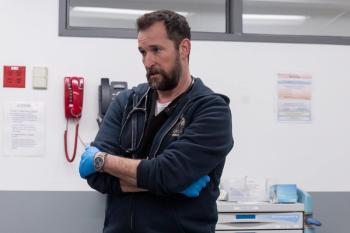
Oracle expects to complete $28B acquisition of Cerner next week
The software giant says it has received all regulatory approvals and should close the deal within days. Oracle says the merger will transform the healthcare industry.
Oracle says it has secured the approval of regulators to move ahead with its planned $28.3-billion acquisition of Cerner.
The Texas-based software giant said June 1 that it had obtained required antitrust approvals in the U.S. and Europe. Oracle said it expects to complete the tender offer to acquire Cerner after midnight June 6.
With the deal, Oracle aims to establish a formidable presence in the healthcare sector by acquiring Cerner, the second-largest electronic health records company in the nation.
As of June 2021, Cerner’s electronic health record software systems were used in 23.7% of U.S. hospitals, behind only Epic, which has its systems in 34.1% of hospitals, according to the
Oracle first announced its plans to purchase Cerner in December 2021. Oracle has said the deal to acquire Cerner could lead to a transformation of the healthcare industry.
- Related story:
What Oracle’s acquisition of Cerner means for healthcare
Oracle Chairman and Chief Technology Officer Larry Ellison plans to talk about the Cerner acquisition and Oracle’s new cloud-based health management applications at an online event on June 9, the company said in a news release.
“Working together, Cerner and Oracle have the capability to transform healthcare delivery by providing medical professionals with a new generation of healthcare information systems,” Ellison said in the news release.
“Better information enables better treatment decisions resulting in better patient outcomes,” he said. “Our new, easy-to-use systems are designed to lower the administrative workload burdening our medical professionals while improving patient privacy and lowering overall healthcare costs.”
Safra Catz, Oracle’s CEO, said healthcare is “the world’s largest and most important vertical market—$3.8 trillion last year in the United States alone. We expect Cerner to be a huge growth engine for years to come.”
Oracle plans to expands Cerner’s products in more countries around the world, the company says.
David Feinberg, Cerner’s CEO and president, said the deal “provides an unprecedented opportunity to accelerate our work modernizing electronic health records, improving the caregiver experience, and enabling more connected, high-quality and efficient patient care.”
Paddy Padmanabhan, founder and CEO of Damo Consulting, told Chief Healthcare Executive in December the deal makes sense in many ways.
“For Oracle, it seems to be a good move on their part,” Padmanabhan said. “They get instant credibility, instant access to a large swath of the healthcare ecosystem.”
“It also provides for Oracle to compete in technology where others are ahead, and one obviously is cloud,” Padmanabhan said. “The whole cloud movement is one Oracle has been slow to embrace.”
Analysts such as Padmanabhan also have said it could spur other tech leaders to make more moves. Giants such as Amazon and Microsoft could conceivably make a bid to acquire one of the other major electronic health record companies.
The completion of the Oracle-Cerner deal comes just a few months after Microsoft concluded its $20 billion acquisition of Nuance in March.
However,
Analysts say the deal between Atrium Health and Advocate Aurora





























































































